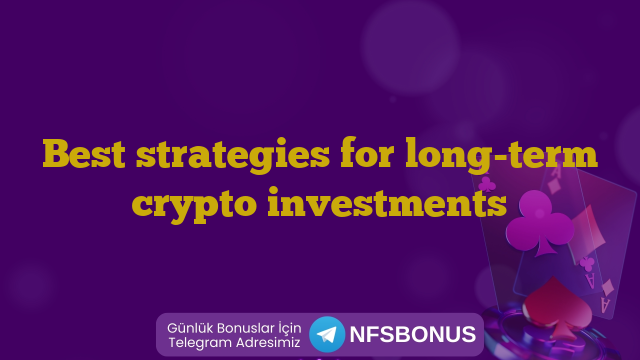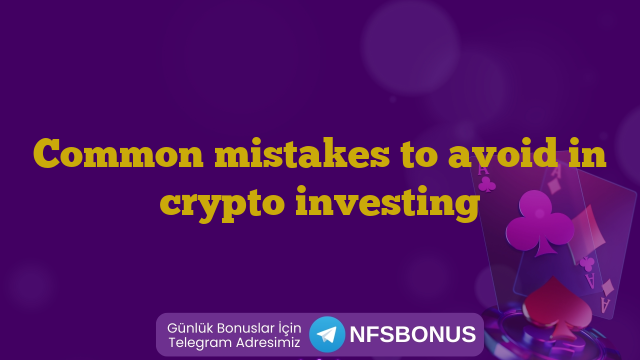Understanding The Basics Of Altcoin Investment
When choosing altcoins for investment, it is crucial to understand the underlying technology, market dynamics, and the unique aspects that differentiate them from more established cryptocurrencies like Bitcoin. Altcoins vary widely in purpose, utility, and market performance, which means thorough research is essential for making informed decisions. Investors should consider factors such as the altcoin’s market cap, trading volume, and the team behind it, as these elements can significantly influence the cryptocurrency’s future potential.
Before diving into specific altcoins, it helps to identify what you are looking for in an investment. There are several characteristics that can indicate a promising altcoin, which can guide your decision-making process. Here are some Key Characteristics Of Altcoins to consider:
- Market Capitalization: Helps gauge the size and stability of the altcoin.
- Liquidity: Indicates how easily the coin can be bought or sold without affecting its price.
- Technology: Innovative features or robust underlying technology can enhance an altcoin’s value.
- Community Support: A strong community can propel the coin’s adoption and market activity.
- Use Case: Clearly defined applications can increase demand and drive value.
Investing in altcoins also requires a good understanding of the market trends. Awareness of the sentiment surrounding the cryptocurrency market, along with the potential economic factors affecting it, can provide insights into when to buy or sell. Moreover, it is essential to stay with credible sources of information, as the cryptocurrency market is notorious for misinformation. By following these insights, investors can make more informed decisions when it comes to choosing altcoins for investment.
Risk management strategies are equally important. Potential investors must be aware that altcoins can be highly volatile and susceptible to rapid market shifts. Setting clear investment goals, determining acceptable risk levels, and employing strategies such as dollar-cost averaging can help mitigate potential losses. Ultimately, meticulous research and prudent investment practices will go a long way in navigating the complexities of altcoin investments.
Critical Factors To Consider When Choosing Altcoins For Investment
When it comes to choosing altcoins for investment, there are several critical factors to keep in mind to maximize your chances of success. Altcoins can offer unique opportunities, but distinguishing the worthwhile investments from the risky ones requires careful analysis. Since the cryptocurrency market is notably volatile, a thorough approach can help you mitigate risks and make informed decisions.
One of the most crucial aspects to evaluate is the project’s fundamentals. This includes examining the technology behind the altcoin, its use case, and the team behind its development. Engaging with the community on platforms such as Telegram or Reddit can provide deeper insights into the project’s credibility and potential for growth. Furthermore, understanding the market demand for the altcoin’s utility is essential. If a coin solves a real-world problem or meets a market demand, it’s more likely to gain traction.
Steps For Evaluating Altcoins
- Research the project’s whitepaper for technical details and objectives.
- Examine the team’s background and experience in the industry.
- Assess the community support and engagement levels.
- Analyze the market cap and trading volume to gauge interest.
- Check historical price performance and volatility.
- Consider the altcoin’s partnerships and integrations within the ecosystem.
- Evaluate regulatory factors that might impact the altcoin’s legality and use.
Additionally, it’s vital to stay updated with market trends. Follow reliable news sources and platforms that report on cryptocurrency developments. This will help you identify patterns and broader market sentiments that can influence investment decisions. Leveraging tools like technical analysis can also provide insights into potential entry and exit points, enabling you to make proactive investment choices. Always remember that diversifying your portfolio can further mitigate risks associated with investing in any single altcoin.
Popular Altcoin Types And Their Unique Features
When choosing altcoins for investment, it’s essential to understand the different types available in the market. Each altcoin serves a specific purpose and comes with its own unique features that can influence its growth potential. By gaining insights into these features, investors can better navigate the altcoin landscape to make informed decisions.
Types Of Altcoins
- Utility Tokens
- Security Tokens
- Stablecoins
- Forks
- Governance Tokens
- Privacy Coins
- Memecoins
Recognizing these types of altcoins can help investors focus their research on the ones that align with their investment goals. For instance, utility tokens provide access to specific applications or services within their ecosystems. On the other hand, security tokens represent ownership in a company or asset, making them an attractive option for investors looking for something more stable.
Utility Tokens
Utility tokens are designed to be used for specific functions within a project or platform. They often grant holders access to services or products, making them a vital component of a blockchain ecosystem. When considering choosing altcoins for investment, utility tokens can offer great potential as their value often increases with the demand for the services they provide. It’s crucial to evaluate the underlying project and its intended use case before investing.
Security Tokens
Security tokens, unlike utility tokens, are regulated and backed by tangible assets, making them more conservative investment options. They provide investors with ownership stakes, dividends, or other financial benefits. As regulations around blockchain technology become more defined, security tokens are expected to grow in popularity. For investors focused on stability amidst market fluctuations, understanding the fundamentals of security tokens is essential when choosing altcoins for investment.
Analyzing Market Trends To Make Informed Decisions
When it comes to choosing altcoins for investment, understanding market trends is essential for making informed decisions. Market trends refer to the general direction in which a market is moving and can significantly impact the value of altcoins. By analyzing these trends, investors can identify opportunities and potential risks associated with different cryptocurrencies. This analysis allows for a more calculated approach in selecting the right altcoins that align with investment goals.
One effective method to analyze market trends is to monitor price movements and trading volumes. By observing how an altcoin has performed over time, investors can gain insight into its past volatility and, potentially, its future behavior. Tools such as charts and trend indicators can help in visualizing these movements, providing clearer patterns that are easier to interpret.
Steps To Analyze Market Trends: 1. Research historical price data for specific altcoins. 2. Monitor trading volume trends to gauge market interest. 3. Use technical analysis tools to identify patterns. 4. Follow market sentiment through news and social media. 5. Observe regulatory changes impacting the cryptocurrency landscape. 6. Compare altcoin performance against major cryptocurrencies like Bitcoin and Ethereum. 7. Look for partnerships and real-world applications of the altcoin.
Moreover, understanding the overall market climate can also aid in choosing altcoins for investment. Sentiment analysis, driven by social media trends and news coverage, plays a crucial role in influencing investor perception and behavior. By tapping into various resources, such as community forums and news articles, investors can gain valuable perspectives that contribute to their analysis. This combined approach can lead to more informed decisions and a stronger investment strategy in the realm of altcoins.
Risks And Drawbacks Of Investing In Altcoins
Investing in altcoins can be an enticing opportunity for investors looking to diversify their portfolio. However, it is essential to understand the risks and drawbacks associated with these digital assets. Before choosing altcoins for investment, consider the potential pitfalls that could affect your financial outcomes. The crypto market is known for its volatility and rapid changes, making it imperative for investors to remain informed and cautious.
One of the significant risks of investing in altcoins is the lack of regulation. Unlike more established cryptocurrencies like Bitcoin, many altcoins operate in a regulatory gray area, which increases the potential for fraud and market manipulation. Additionally, investors must consider the liquidity of altcoins, as some may not have enough trading volume to support larger transactions without significantly impacting the price.
Common Risks Faced
- Market volatility and price fluctuations
- Regulatory uncertainties
- Low liquidity and trading volume
- Potential for scams and fraudulent projects
- Technology and security risks
- Lack of historical data for analysis
- High competition among numerous altcoins
Further complicating the landscape is the technological aspect. Some altcoins may rely on newer or untested technologies that carry inherent risks. Investors should conduct thorough research to ascertain the viability and security features of the altcoin projects they are considering. Inadequate security can lead to hacks, resulting in lost funds and eroded investor confidence.
In conclusion, while altcoins may offer lucrative opportunities, it is vital to approach them with caution. The risks involved in choosing altcoins for investment are numerous, and understanding these risks can help you make informed decisions. Always ensure that you conduct due diligence by researching potential investments, assessing their fundamentals, and staying updated on market trends. This way, you will be better equipped to navigate the complexities of the altcoin market.
Key Takeaways And Next Steps For Investing
As you navigate the complex world of cryptocurrency, understanding the essence of choosing altcoins for investment becomes paramount. Each coin presents unique opportunities and risks, making it essential for you to conduct thorough research and analysis before making any commitments. Remember that the cryptocurrency market is volatile, and informed decisions can significantly impact your financial success.
One of the critical actions to consider is developing a clear strategy that aligns with your financial goals and risk tolerance. This clarity will not only guide your investment choices but also help you stay focused amid market fluctuations. Establishing a robust investment plan can aid in mitigating emotions and impulsive decisions that often lead to poor outcomes.
The future of altcoins holds many possibilities, but thorough research is the key to unlocking their potential.
To aid you in this journey, here are a few actionable steps to start investing in altcoins:
- Set clear investment goals that reflect your financial situation.
- Research different altcoins, focusing on their technology, use case, and market potential.
- Diversify your portfolio to spread risk across various altcoins.
- Conduct regular market analysis to stay updated on trends and developments.
- Engage with crypto communities to gain insights and share experiences.
- Consider using technical analysis tools to assist in your trading decisions.
- Be prepared for volatility; ensure you have an exit strategy in place.
By consistently applying these steps, you can enhance your confidence in choosing altcoins for investment. Each coin’s specifics will influence your decisions, as will the evolving cryptocurrency landscape. Stay adaptable and maintain your knowledge base; the more informed you are, the better your chances for success in the exciting realm of altcoin investment.
Frequently Asked Questions
What are altcoins and why should I consider them for investment?
Altcoins are any cryptocurrencies other than Bitcoin. They offer diverse investment opportunities and can potentially provide higher returns compared to Bitcoin, making them an attractive option for investors looking to diversify their cryptocurrency portfolios.
What should I prioritize when selecting altcoins for investment?
When choosing altcoins, focus on factors such as the project's team, technology, use case, market capitalization, community support, and overall market conditions to ensure a well-rounded investment strategy.
Can you explain the difference between utility tokens and security tokens?
Utility tokens grant users access to a product or service within a blockchain ecosystem, while security tokens represent ownership in an asset, similar to traditional stocks. Understanding these distinctions can guide your investment choices.
How can I analyze market trends to guide my altcoin investment decisions?
Monitoring market trends involves studying price movements, trading volumes, historical data, and social media sentiment. Tools like technical analysis and market indicators can further inform your decisions.
What are the main risks associated with investing in altcoins?
Investing in altcoins poses risks such as high volatility, regulatory uncertainty, project failure, and potential security vulnerabilities. It's crucial to conduct thorough research and be prepared for market fluctuations.
How can I mitigate the risks while investing in altcoins?
To reduce risks, diversify your portfolio across multiple altcoins, allocate only a small portion of your investment capital, and stay updated on news and market changes that could affect your investments.
What are some of the most popular altcoins right now?
Popular altcoins can vary over time, but as of now, Ethereum (ETH), Binance Coin (BNB), Cardano (ADA), and Solana (SOL) are among the well-regarded options due to their established platforms and strong communities.
What should I do next after learning about choosing altcoins for investment?
After familiarizing yourself with altcoin selection strategies, start by researching specific coins that interest you, consider creating a small test investment, and continually educate yourself about market dynamics and trends.





